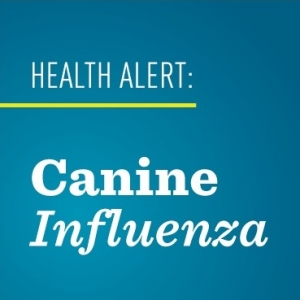The Canine Influenza Virus
Safety Tips
 The safety of your dogs is our first priority at Wagging Tails Pet Resort. While there have been no reports in Minnesota at this time, concern over the spread of the Canine Influenza Virus H3N2 (CIV) has made us extra vigilant at the resort. To reduce the possible spread of this (or any) illness, we ask for your help at home too.
The safety of your dogs is our first priority at Wagging Tails Pet Resort. While there have been no reports in Minnesota at this time, concern over the spread of the Canine Influenza Virus H3N2 (CIV) has made us extra vigilant at the resort. To reduce the possible spread of this (or any) illness, we ask for your help at home too.
CIV is a highly contagious respiratory disease, and dogs of any age, breed and vaccine status are at risk. While the virus that causes CIV does not survive for a long time in the environment and is not infectious to people, it is highly contagious between dogs. To reduce the spread of this illness, it is important to limit contact of infected animals. If you notice any of these symptoms in your dog, contact your veterinarian immediately:
- Coughing
- Sneezing
- Fever
- Runny nose that progresses to thick, yellowish-green mucus
- Loss of Appetite
- Lethargy
Since CIV is a virus similar to the flu humans get, providing your dog with rest and care is the typical treatment to help her recover. In partnership with your vet, it will be important to provide good nutrition to support their immunity, medications to treat secondary bacterial infections, fluids to prevent dehydration, and supervision to prevent or treat pneumonia. With this care and a warm space to rest, most dogs recover within 10 to 30 days.
To minimize the spread of ANY contagious illness, including CIV, Wagging Tails has an extensive cleaning protocol in place. All the playrooms are disinfected daily, and suites are fully disinfected between every guest. And toys, food bowls and water bowls are thoroughly cleaned after every use to reduce the risk of cross contamination.
Our staff is trained to recognize the symptoms of CIV and will immediately quarantine dogs that exhibit symptoms, and contact their owners and veterinarians. We ask for your help at home by watching your dogs for symptoms, and by not exposing them to other dogs if you suspect an infection of CIV.
For additional information on Canine Influenza Virus, visit ASPCA.

